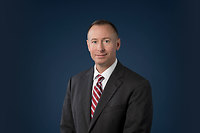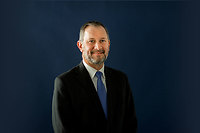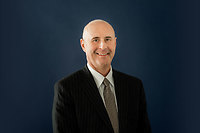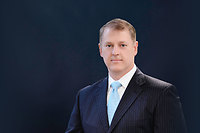On September 22, 2021, the Ohio Supreme Court majority in Johnson v. Abdullah, Slip Opinion No. 2021-Ohio-3304, upheld Ohio’s rule requiring that only physicians who spend more than 50 percent of their time in the “active clinical practice” can testify as expert witnesses on the issue of liability. A physician employed in an executive position who does not directly oversee physicians who treat patients does not satisfy the active clinical practice requirement of Evidence Rule 601.
In Johnson, the family sued Dr. Abdullah for medical negligence related to his care and treatment rendered to Mr. Johnson during his visit to the emergency room in 2011. At trial, both parties provided expert testimony on the issue of whether Dr. Abdullah should have intubated Johnson before he experienced cardiac arrest. Dr. Abdullah’s expert witness, Dr. Ron Walls, was the Chief Operating Officer (“COO”) at Brigham and Women’s Hospital in Boston, and a professor of emergency medicine at Harvard Medical School. At trial, the jury also heard a litany of Dr. Walls’ impressive accomplishments and experiences, including performing over 1,000 intubations himself, creating a course on intubations and airway management and training between 8,000 and 10,000 physicians through this course, collecting numerous honors from emergency medicine societies, and authoring myriad peer-reviewed publications and chapters in textbooks on intubation, to name a few. Despite these renowned credentials, the claimants objected to Dr. Walls’ testimony, maintaining that Dr. Walls failed to satisfy the requirements of Evid.R. 601 because he was not involved in the active clinical practice of medicine. The trial court ultimately deemed Dr. Walls competent to testify and the jury determined Dr. Abdullah was not negligent.
On Appeal, the First District Court of Appeals reversed and remanded the case for a new trial. In addressing the trial court’s decision to admit Dr. Walls' opinions on standard of care, the court concluded that Dr. Walls’ job was “almost entirely administrative,” despite his testimony that everything he did in his administrative role influenced patient care. The First District Court rejected the defense argument that Dr. Walls was engaged in the active clinical practice of medicine, concluding that the plain language of Evid.R. 601 prevented Dr. Walls from testifying.
Thereafter, the Ohio Supreme Court accepted jurisdiction over Dr. Abdullah’s appeal in which he raised the following proposition of law: “When reviewing a trial court’s decision on a witness’s competence, an appellate court is not free to weigh in on the credibility of that witness and substitute its own judgment for that of the trial court.” In addressing the question, the Supreme Court focused its analysis on whether Dr. Wall’s activities qualified as the “active clinical practice of medicine” sufficient to meet the Evid.R. 601 requirements.
Evid.R. 601(B)(5) states that those who give expert testimony on the issue of liability in a civil case involving a medical claim must “devote at least one half of his or her professional time to the active clinical practice in his or her field of licensure, or to its instruction in an accredited field.” The Court acknowledged that “active clinical practice” is not defined in state law or in the rule, but through Supreme Court cases it has been defined as work that is “related or adjunctive to patient care.” The Court reiterated that the purpose of this requirement is to preclude testimony by a physician who spends the majority of their time testifying against fellow physicians as a “professional witness” while allowing testimony from medical specialists directly involved in assisting with patient care.
Dr. Abdullah argued that because at the time of the alleged negligence in 2011, Dr. Walls devoted 75% of his time to active clinical practice or medical instruction, he satisfied Evid.R. 601, relying on the Court’s 2007 decision, Celmer v. Rodgers, 114 Ohio St.3d 221, 2007-Ohio-3697, 871 N.E.2d 557. The issue in Celmer was whether a trial court has the discretion to permit a party’s medical expert to testify as an expert when the expert does not satisfy the requirements of Evid.R. 601 at the time trial takes place but did at the time trial was originally scheduled to start after the trial was delayed at the request of the opposing party. The limited exception created in Celmer, however, permitted consideration of the witness’s activities at the time the trial was originally scheduled to begin under the particular circumstances of that case. The Court declined to expand the limited exception established in Celmer, noting that to do so would in effect rewrite the plain language of Evid.R. 601. Instead, the Court held the general rule was applicable in this case: the witness must meet the active clinical practice requirement of Evid.R. 601 at the time the testimony is offered at trial. Accordingly, the Court determined that it was improper to allow Dr. Walls to testify on standard of care, as Dr. Walls testified that 90% of his work would be characterized as purely executive or administrative, with him devoting only one hour a week to making hospital rounds with the hospital’s chief nurse and minimal mentoring sessions with faculty. The Court rejected Dr. Abdullah’s argument that his administrative work was directly related to patient care, noting that while it may be true that Dr. Walls’ work did have an impact on the hospital’s overriding mission of treating patients, Dr. Walls did not interact with the physicians who were treating patients. Thus, he was not engaged in the active clinical practice of medicine or a role adjunctive to patient care. The Court further noted that Dr. Walls’s hour-long classroom session once every three or four months also did not satisfy Evid.R. 601 requirements.
If you have any questions regarding this decision or Healthcare Liability, please contact a member of Reminger’s Medical Malpractice Liability Practice Group.
This has been prepared for informational purposes only. It does not contain legal advice or legal opinion and should not be relied upon for individual situations. Nothing herein creates an attorney-client relationship between the Reader and Reminger. The information in this document is subject to change and the Reader should not rely on the statements in this document without first consulting legal counsel. THIS IS AN ADVERTISEMENT
Attorneys
- Cleveland
- Columbus
- Akron
- Sandusky
- Toledo
- Youngstown






